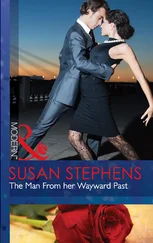Is there a certain technique? she asked innocently. They were at the hotel. He’d been checking out the bathroom to see whether he could use it for a darkroom. The bathroom had a broken doorknob that occasionally locked solid, and for this reason there was a screwdriver behind the tap. The room looked as though a poltergeist lived there: rotting tiles that came off the wall and broke in pieces on the floor, plaster dust, handles that dislodged themselves overnight, doors that swelled with the humidity and wouldn’t shut or wouldn’t open. The bath was moldy; the grout grew a tenacious fur. Insects everywhere, occasional rats, which she discovered had gnawed spaces in the plaster where the pipes were laid so that they could navigate the whole of the building through the maze of its plumbing. Despite these flaws, Son said it was perfect. The bathroom would be ideal for developing his film. But could they put a board across the bidet (rust-colored water; jammed, immobile taps) and use it as a small table? Could they get rid of the flouncy shower curtain Susan bought because there had been none when she arrived? Could he move the towels? In short, could she do without a bathroom?
You want me to tell you how to fall down? he said. His cigarette bobbed in his mouth as he spoke; his large white teeth reminded her of piano keys, and though he was smiling he seemed completely baffled when she nodded and said yes. It was one of those moments between them—one of many—in which he seemed as confused by her as she was by him, by the whole of his country, and especially the war. He could have admitted he was equally mystified by Western women, and particularly by Susan, but he might have thought that this fact was already quite plain. Fall down? he said now. Just …his hands beside his head showed his confusion. Have you never done that?
Not deliberately , she told him.
If a vehicle is hit, it can easily blow up, and vehicles of any description are one of the favorite targets of the Vietcong, who attempt to take out as many supplies as possible on their way to the field.
She read this in the Handbook , but she had no idea what it meant, what it really meant, until Son threw her off a flatbed in the same manner in which you might throw off a bale of hay. She learned also in those long minutes that once you’ve heard the shooting and jump over the side of the truck, you should follow immediately wherever the soldiers are running. And they will be running toward the bullets. Again, this was not initially for her a voluntary act; she was hauled along by a marine who held her like a bag of groceries in his nonsmoking hand.
She was getting closer all the time. She didn’t realize how close.
She got a telegram from her editor:
EXCELLENT WORK ON HOSPITAL STORY STOP PHOTOGRAPHS BY HOÀNG VAN SON FIVE DOLLARS NO MORE STOP
She had to tell Son five dollars was all that the magazine would give him. She was embarrassed by how cheap her editor could be, or whoever it was who decided such things. Sorry, Son, we can’t really argue with them, but you could sell the photographs elsewhere , she said. It’s so little money, I’m embarrassed.
No arguing , said Son. Celebrating, yes, but no arguing.
But I hear Associated Press is paying fifteen a pop —
Susan, that is blood money.
Blood money?
I don’t think you understand what is danger yet. The first few months you won’t. What were you doing up in Con Thien? You’ll begin to judge these things better. Well, I hope so.
He looked at her as though she were a live circus act. As though trying to decide if she’d fall off the wire.
First there had been the bunker in Con Thien, then Marc saw her at a party in Saigon. It wasn’t like him to go to such a party. He’d been in Vietnam a long time, been to more than his share of events in hotel rooms and embassies and restaurants, private rooms and villas, hotels and offices and bars. He’d grown weary of them. But tonight’s casual, crowded gathering took place in his own hotel, one floor down. He’d have had to make an effort to escape it and there had already been enough talk about him. About how solitary he’d become, how remote. The rumors—that he kept his own M16 under his bed, that he was never without the dried hind foot of a rabbit, either in his pocket or around his neck; that he, in fact, had a mojo bag full of talismans and holy cards, wore a St. Christopher’s, counted backwards from seven before jumping from choppers—used to make him laugh. But lately, he’d come to wonder if he appeared strange to his colleagues, enough so that they thought some explanation was in order. So he went to the party, arriving at the door to the welcome of Brian Murray, about whom no rumors were ever put forward. The man never seemed to travel five minutes for a story these days.
Oh, good, the press has arrived , Murray said. Murray was a print reporter and his comment might have been yet another little dig at television reporters who—it was understood—were not nearly as informed as those who wrote for newspapers. Marc never really understood the rivalry, and he didn’t see why Murray always felt compelled to remind him of it. It felt like a reprimand, coming from the older man.
You look well , Marc said. Murray wore crisp cream-colored trousers, a new belt. His shirt had been diligently pressed, undoubtedly by one of the Vietnamese girls who worked in the hotel. His shoes, too, were unscuffed, even glowing, beneath the layers of polish that had been applied.
I’m in one piece , he said.
You’ve had a lot of print lately.
The wire has. It’s Sanchez. He’s always out there, him. But not me. Not as much as I’d like. Murray said something else, too, but Marc found it difficult to hear him. The music blared from four speakers, rigged up in the corners of the room. Murray was a quiet guy. He didn’t look like he belonged in such a gathering. He looked like he should be at home with his wife and children, with a dog at his feet and a warm drink and a pipe. His hair curled in graying locks and his pale skin showed exactly how little he got out. He probably never left the city any more. He probably was at the door now because it was the quietest place to stand.
You going to let me in? Marc said.
Oh yeah. Sorry, Davis. Come in.
Marc looked for the bathroom, where undoubtedly there would be a tub of beer swimming in melted ice. He looked for Locke, but couldn’t find him. He was probably asleep. They’d been up most of the night before, flying the milk-run from Danang, hoping to get back before the weather turned. Marc got a drink and talked with a few guys from a French paper. The French pouted into their drinks and passed each other Gauloises cigarettes. They always looked so miserable at American gatherings; he wondered why they never appeared to miss a single one.
He picked up a Life magazine, thumbing through its pages for the stories about Vietnam, but it was all about protestors this week, photograph after photograph of marches and rallies. He glanced through the articles, looking at the images of streets and squares so crowded with people he could not pick out a single feature of cities he knew well. He tried to imagine himself there again, back home in the States. The country—his country—felt far away, almost impossible to reach. Sometimes, when they packed the film to be sent to San Francisco and then on to New York, it seemed to him like magic that the parcel could reach those same streets he knew, that the city blocks and buildings with all their shining windows existed at all, and even more astonishing, that they existed exactly as he remembered them, untouched, unbothered by the chaos he reported daily.
Читать дальше












